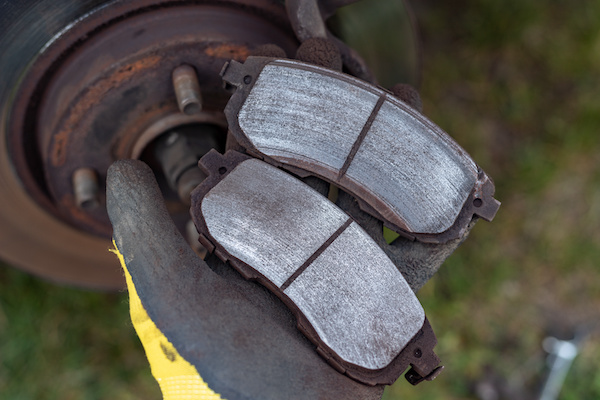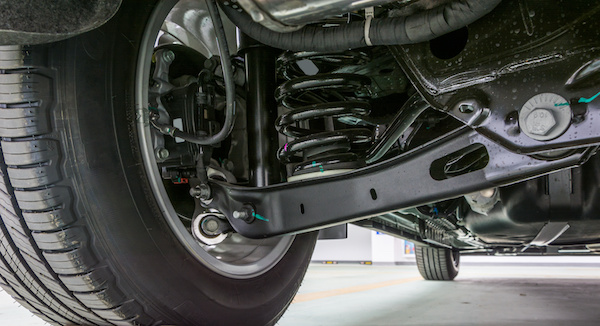Posted on 12/30/2022

You know that you should replace your brake pads every so often. Read on below on when you should replace them. When to replace brake pads One of the main factors that determine how often you should replace your brake pads is the type of driving you do. If you frequently drive in stop-and-go traffic, or if you frequently brake hard, your brake pads will wear down more quickly than they would if you were driving on the highway or in more gentle driving conditions. Similarly, if you frequently carry heavy loads or tow trailers, your brake pads will also wear down more quickly due to the extra weight on your brakes. The type of vehicle you drive can also affect how often you need to replace your brake pads. Some vehicles, such as trucks and SUVs, tend to have heavier braking systems and may require more frequent brake pad replacements. On the other hand, smaller, lighter vehicles may have longer-lasting brake pads. The quality of the brake pads you are using can also make a differenc ... read more
Posted on 11/30/2022

Without the shocks and struts in your suspension system, your drives will be unstable, uncomfortable, and unsafe. Most vehicles on the road come equipped with shocks, struts, or a combination of both. These components are responsible for absorbing the impacts of bumps and other rough patches on the road. They also support the weight of your vehicle. If you want to maximize control over your vehicle, don’t skip out on suspension maintenance and repairs. Shocks and struts are important because they can impact your safety. When struts and shocks wear out, you lose some handling and control of your vehicle. The more you neglect the repairs, the worse the symptoms will get. Here are some of the top signs that indicate you need shocks and struts service: Excessive bounciness after driving over bumpy roads Trouble steering Pulsations Uneven tire wear Vehicle nose dives while braking Vehicle pulling Greasy leaks near shocks/struts Shocks and struts are not frequent replace ... read more